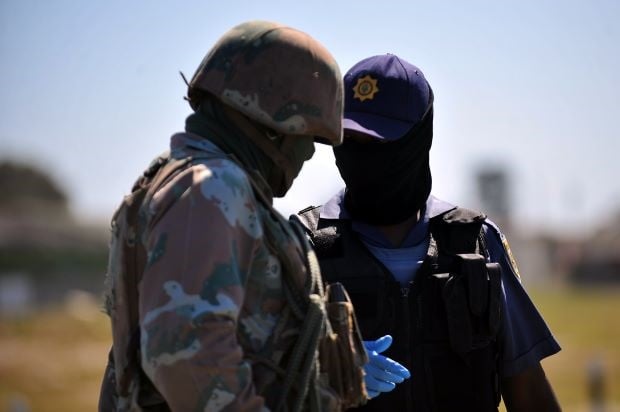


(Photo by Gallo Images/Ziyaad Douglas)
- Police take the badge of infamy for being SA’s most corrupt during the 2020 Covid-19 lockdown.
- Researchers claim the police lead a poisoned corruption procession from across all walks of society.
- Corruption has seeped foul into every corner of society.
Thuggish, greedy police who engineer bribes were among the most crooked South Africans during Covid-19.
They join pilfering principals, local government looters and gluttons taking from the mouths of babes.
These are among the army of corrupt South Africans who have been exposed by Corruption Watch, in its Analysis of Corruption Trends (ACT) report.
“The destruction wrought by corruption is silent but deadly, and it is most often the poorest in society who are brutalised by the actions of these corrupt individuals,” said Corruption Watch’s Melusi Ncala.
Of those tasked with upholding the law, the researchers said: “On the subject of police corruption, reports from the public reveal disturbing allegations of brutality, most evident during the early stages of the Covid-19 lockdown.
“These reports speak to SAPS’ lack of humanity and consideration for the members of the public whom it serves, and a blatant disregard for law and order on the part of officers and officials.
“Perhaps, predictably, bribery features in 31% of reports of police corruption, highlighting how police officers solicit bribes from suspects and victims alike, as well as residents.
The report continues:
During the lockdown period, officers seemed to act with impunity in both their behaviour and extraction of favours; patterns that also featured in the 29% of allegations relating to abuse of power.
Of 2 000 whistleblowers, 13% named and shamed cops, who topped the corruption scorecard for the second consecutive year.
Other egregious effrontery included food thievery – described as “a particularly disturbing corruption trend”.
The food parcels had been intended “for the large groups of the population, which suffered massive food insecurity as a result of the Covid-19 lockdown”.
“This brings to light the greed and the lengths that those in power are prepared to go to, to profit at the expense of the most vulnerable.
“Corruption Watch received 67 reports of corruption relating to the provision of food parcels during lockdown. In these cases, members of the public were asked to pay or provide favours in exchange for food parcels, while food parcels were distributed according to systems of patronage, and some ward councillors or elected officials allegedly even stole the contents of food parcels,” the authors reported.
The corruption busters expressed no surprise at a 400-strong increase in whistleblowers, considering “the rampant corruption in Covid-19 procurement”.
This had enraged people trying to survive the global pandemic.
Ingenious white-collar crime also flourished under the lockdown, with researchers uncovering spiders’ webs of maladministration, “specifically the deliberate delaying of or disregard for legal and official government processes, accounts for 19% of all reports”.
This is followed by misappropriation of resources at 14% – which includes theft, misuse, abuse of, and wasteful spending on state vehicles, equipment, time and funds.
Procurement irregularities, also accounting for 14% of reports, relate to irregular awarding of tenders and flouting of related processes.
Bribery and extortion and employment irregularities each make up 13% of the total reports received.
No sector of society was spared Corruption Watch’s wrath.
ALSO READ | This is how the SIU is investigating Covid-19 corruption
“The reports that we receive provide a snapshot of the graft that has manifested in every sphere of government, with the complicity of the private sector, and encompassing multiple sectors in our society,” said Ncala, primary researcher for this report.
But as numerous in number were the brave, those who outed the wicked.
“Ordinary people show immense courage in outing these corrupt individuals. They make it clear that the situation must change, this can’t go on.
“Whether unruly police officers, greedy executives and their government counterparts, teachers and principals at schools, who see nothing wrong in stealing food and resources from learners, or health sector professionals, who endanger the lives and well-being of the sick through their outright theft of resources, they must all be brought to book,” said Ncala.

